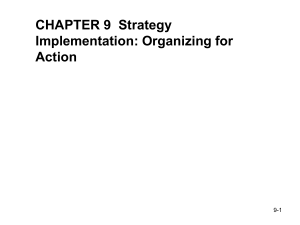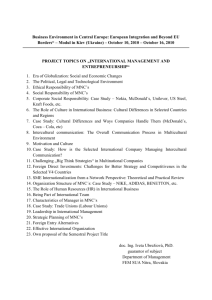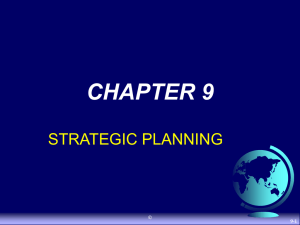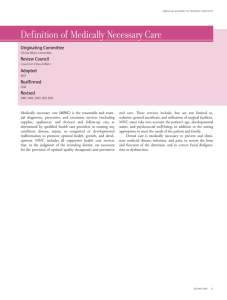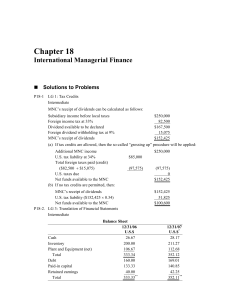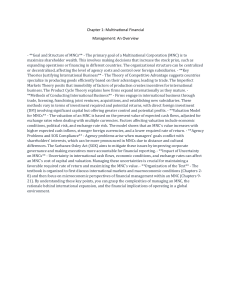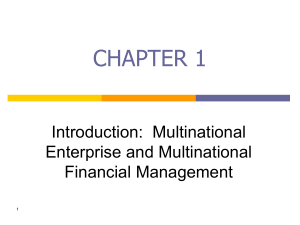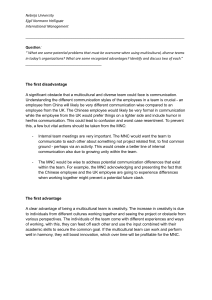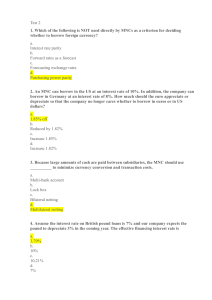Dushkina Yuliya AMM 260.5096 Homework #3.
advertisement
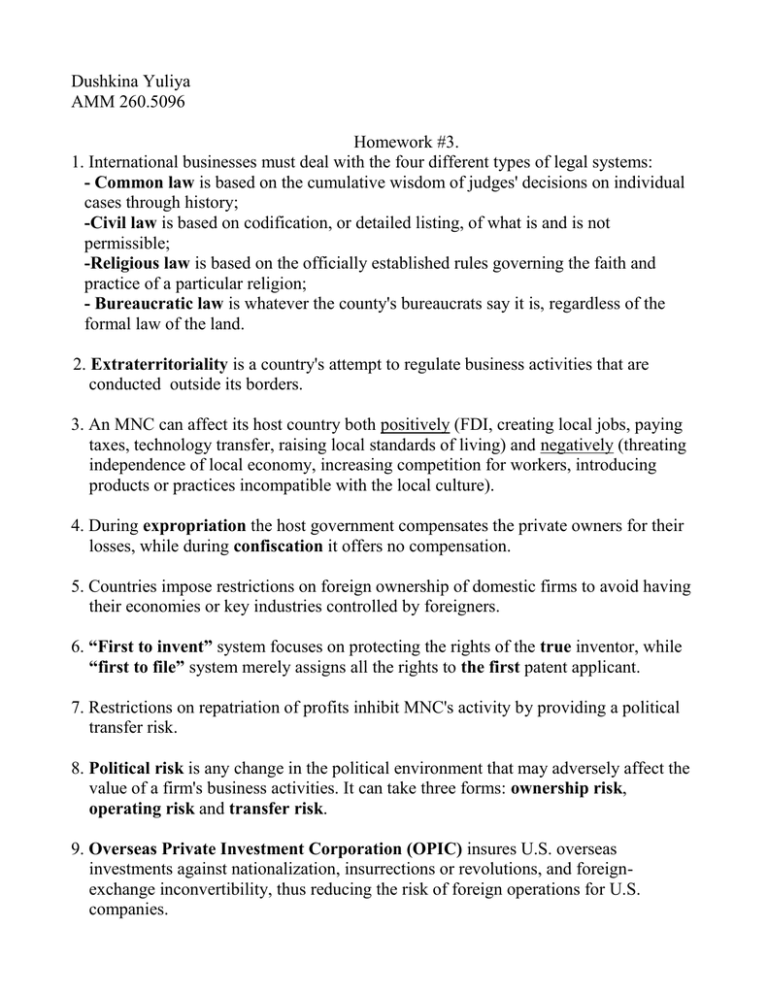
Dushkina Yuliya AMM 260.5096 Homework #3. 1. International businesses must deal with the four different types of legal systems: - Common law is based on the cumulative wisdom of judges' decisions on individual cases through history; -Civil law is based on codification, or detailed listing, of what is and is not permissible; -Religious law is based on the officially established rules governing the faith and practice of a particular religion; - Bureaucratic law is whatever the county's bureaucrats say it is, regardless of the formal law of the land. 2. Extraterritoriality is a country's attempt to regulate business activities that are conducted outside its borders. 3. An MNC can affect its host country both positively (FDI, creating local jobs, paying taxes, technology transfer, raising local standards of living) and negatively (threating independence of local economy, increasing competition for workers, introducing products or practices incompatible with the local culture). 4. During expropriation the host government compensates the private owners for their losses, while during confiscation it offers no compensation. 5. Countries impose restrictions on foreign ownership of domestic firms to avoid having their economies or key industries controlled by foreigners. 6. “First to invent” system focuses on protecting the rights of the true inventor, while “first to file” system merely assigns all the rights to the first patent applicant. 7. Restrictions on repatriation of profits inhibit MNC's activity by providing a political transfer risk. 8. Political risk is any change in the political environment that may adversely affect the value of a firm's business activities. It can take three forms: ownership risk, operating risk and transfer risk. 9. Overseas Private Investment Corporation (OPIC) insures U.S. overseas investments against nationalization, insurrections or revolutions, and foreignexchange inconvertibility, thus reducing the risk of foreign operations for U.S. companies.
